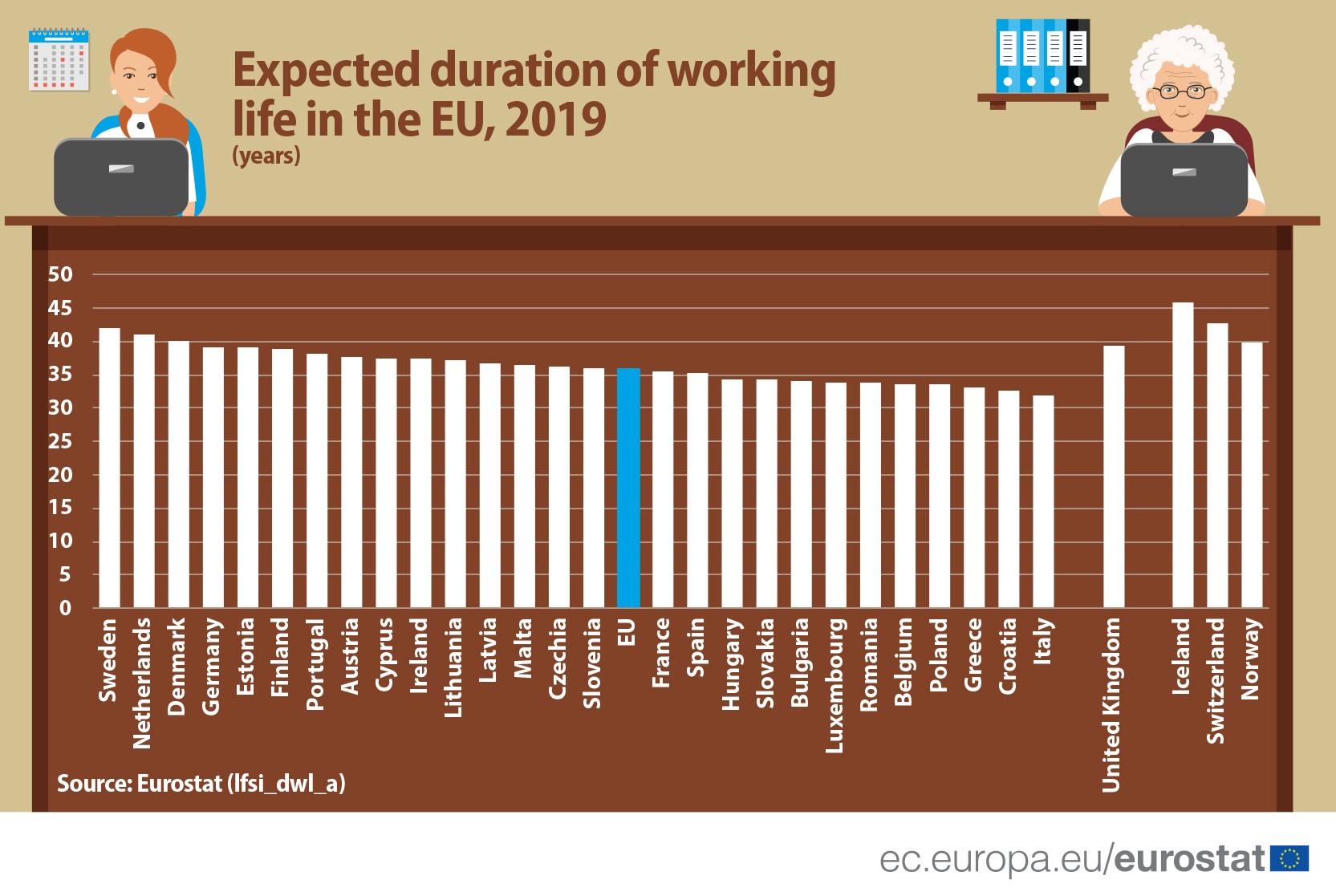
In 2019, the expected average duration of working life for the European Union’s (EU) adult population aged 15 years and more was 35.9 years. This was 0.2 years longer than the average for 2018, and 3.6 years longer than in 2000.
Men were expected to work longer than women in 2019 (38.3 years for men compared with 33.4 years for women). Although the expected average duration of working life has been longer for men than women since the start of the data series, the gender gap has been shrinking. Men worked 7.1 years longer than women in 2000, but by 2019 the gender gap had shrunk to 4.9 years.
Among EU Member States, Sweden and the Netherlands had the longest duration of working life (42.0 and 41.0 years in 2019 respectively). These were the only two EU Member States where the expected duration of working years exceeded 40 years. These two Member States were followed by Denmark (40.0 years), Germany (39.1 years) and Estonia (39.0 years).
In contrast, the shortest expected duration of working life was recorded in Italy (32.0 years) followed by Croatia (32.5 years), Greece (33.2 years), Belgium and Poland (both 33.6 years).